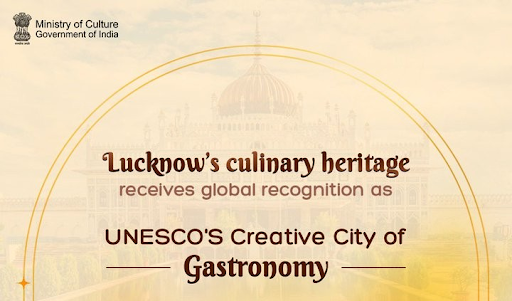Description

Disclaimer: Copyright infringement not intended.
Context:
- Srinagar has recently been designated as a World Craft City (WCC) by the World Crafts Council (WCC), marking a significant recognition for its rich cultural heritage and craftsmanship.
- This accolade is expected to revive Kashmir's traditional craft linkages with Central Asia and Iran, providing new avenues for economic growth and cultural exchange.
Historical and Cultural Significance
Legacy of Craftsmanship
- Centuries-old Tradition: Srinagar boasts a cultural history spanning over 4,000 years, celebrated for its craftsmanship in shawls, carpets, papier mache, and other art sectors.
- Influence of Persian and Central Asian Artisans: The craft scene flourished notably from the 14th century onward, influenced by artisans and preachers from Iran and Central Asia.
World Crafts Council Recognition
- Formal Designation: Srinagar earned the WCC-World Craft City designation after an extensive evaluation by the Council's sub-committee earlier this year.
- Impact on Cultural Exchange: Recognition opens avenues for knowledge exchange and collaboration with other designated craft cities, especially in Iran and Central Asia.

Economic and Cultural Implications
Economic Boost and Export Growth
- Economic Impact: Kashmir’s handicraft sector has witnessed significant economic gains, with exports increasing from Rs. 1,000 to 2,000 crores over the last five years.
- Sector Revitalization: The WCC tag is expected to bolster global recognition and demand for Kashmiri handicrafts, enhancing sustainable income opportunities for artisans.
Promotion of Craftsmen and Heritage Preservation
- Recognition of Artisans: The designation highlights the craftsmanship of unsung artisans who have preserved traditional techniques for generations.
- Policy Initiatives: Initiatives such as Geographical Indication tags, craft tours, and supportive policies by the Handicrafts and Handloom Industries department further promote cultural heritage preservation and economic sustainability.
Future Prospects and Benefits
Long-term Benefits
- Global Recognition: Enhanced visibility on the global stage is expected to increase sales and tourism opportunities for Kashmiri handicrafts.
- Skill Preservation: The WCC tag supports skill preservation and cultural heritage, fostering networks for collaboration and sustainable growth in the craft sector.
Conclusion
- The designation of Srinagar as a World Craft City by the World Crafts Council signifies a renewed focus on Kashmir’s rich cultural heritage and craftsmanship. This accolade not only boosts economic prospects but also preserves traditional skills and promotes cultural exchange, paving the way for a vibrant future in the global handicraft market.
|
PRACTICE QUESTION
Q. Which city has recently been designated as a World Craft City (WCC) by the World Crafts Council (WCC)?
A. Jaipur
B. Srinagar
C. Varanasi
D. Udaipur
Answer: B. Srinagar
Explanation:
Srinagar has been recognized as a World Craft City (WCC) by the World Crafts Council (WCC), highlighting its rich cultural heritage and craftsmanship traditions.
|
SOURCE: THE HINDU















